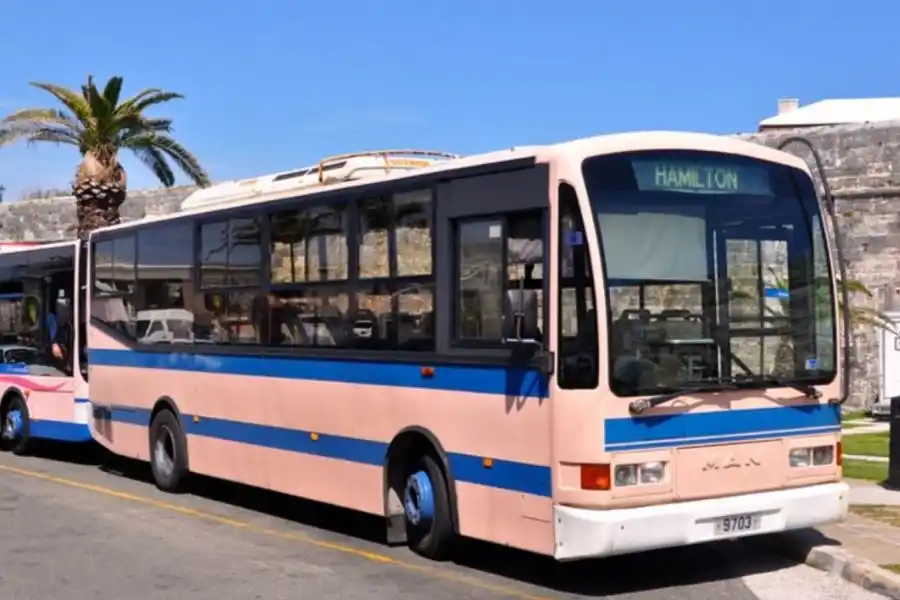Bermuda, however, is a magical destination, with its beautiful beaches and turquoise waters, so for some people. But if you are going even to think about relocating here one of the first questions that will pop into your head is, – how expensive cost of living in Bermuda? In this article, we examine the cost of living in Bermuda from housing to groceries, transportation, and healthcare. Specific insights, key figures, and actionable advice on how it is to live in Bermuda cost-wise we will lay out for you.
Key Takeaways:
- Bermuda is known for its high cost of living.
- Housing and groceries are the major contributors to the expense.
- Understanding the cost of living helps in better financial planning.
Housing Costs in Bermuda
It is no secret that the largest expense you will face in Bermuda is housing costs. High demand for real estate combined with limited island land supply makes a strong market forming over time; prices are significantly growing. Bermuda is an island with limited land area making it hard to find a home here and expensive too.
Whether you are seeking to rent a basic apartment or buy a family home, the high prices of Bermuda’s housing market will not come cheap. With high demand comes a higher cost – and competition means prices for both renting or buying are steep in comparison to the rest of the globe. Living in Bermuda often means embracing a luxury lifestyle, reflected in the premium you pay for housing.
Rental Prices
Rental prices in Bermuda vary depending on the location and size of the property. On average, you can expect to pay:
- One-bedroom apartment in the city center: $2,500 – $4,000 per month
- One-bedroom apartment outside the city center: $2,000 – $3,500 per month
- Three-bedroom apartment in the city center: $6,000 – $10,000 per month
- Three-bedroom apartment outside the city center: $4,500 – $8,000 per month
Buying Property
Buying property in Bermuda is even more expensive. The average price for a house can range from $1.5 million to $4 million, depending on the location and size. Foreigners looking to buy property may face additional restrictions and costs.
Table: Average Housing Costs in Bermuda
| Property Type | Location | Average Monthly Rent | Average Purchase Price |
| One-bedroom apartment | City Center | $2,500 – $4,000 | N/A |
| One-bedroom apartment | Outside City Center | $2,000 – $3,500 | N/A |
| Three-bedroom apartment | City Center | $6,000 – $10,000 | N/A |
| Three-bedroom apartment | Outside City Center | $4,500 – $8,000 | N/A |
| House | Various Locations | N/A | $1.5M – $4M |
Grocery and Dining Expenses
Bermuda spends a lot of money on groceries and eating out at restaurants. Since it is located in a remote area, most of the products to be consumed must be imported which becomes expensive and difficult. Specific examples might include milk, bread, and fresh fruit or vegetable staples which are often more expensive on the island than in mainland locations.
But the higher price is down to shipping rates, imports, and moving fresh food across the water. The costs rise even more on the consumer level when dining out; a comparable supply-side hike creates identical price increases for restaurants, who in turn pass this cost onto their consumers. This means that dining at a casual restaurant or making groceries for the week can be more expensive than you think across other regions.
Grocery Prices
Here are some average prices for common grocery items:
- Milk (1 liter): $3.50 – $4.50
- Bread (500g loaf): $5.00 – $7.00
- Eggs (dozen): $4.00 – $6.00
- Chicken breasts (1kg): $15.00 – $20.00
- Apples (1kg): $5.00 – $7.00
Dining Out
Eating out can also be quite expensive. The average cost of a meal at a mid-range restaurant is about $25 to $50 per person. A three-course meal for two at a nice restaurant can easily cost $100 or more.
Table: Average Grocery Prices in Bermuda
| Item | Average Price |
| Milk (1 liter) | $3.50 – $4.50 |
| Bread (500g loaf) | $5.00 – $7.00 |
| Eggs (dozen) | $4.00 – $6.00 |
| Chicken breasts (1kg) | $15.00 – $20.00 |
| Apples (1kg) | $5.00 – $7.00 |
Transportation Costs
There are many different ways to get around Bermuda, whether it be by public transportation or taxi, taking into account that each way of traveling can add up quickly. Getting around the island is a bit of an adventure in itself, most taxi rides, for instance, are Israeli and can prove rather pricey but buses (and boats) regularly zip from place to place according to schedule offering travel on a semi-skinflint pocketbook.

While the prices of using it now and then will be astronomical. Taxis are a very convenient way to get around, yes they are easily available but can be much more costly on longer trips or regular travel. Personal vehicle ownership provides the greatest freedom but is also one of the most costly options due to hefty import duties, insurance premiums, and fuel prices.
Public Transportation
Bermuda has a reliable public transportation system, including buses and ferries. A monthly pass for public transportation costs around $69. Single bus fares are approximately $3 to $5 depending on the distance traveled.
Owning a Vehicle
Owning a car in Bermuda is expensive due to import taxes and high fuel costs. Here are some average costs associated with owning a vehicle:
- Gasoline (per liter): $1.70 – $2.00
- Car insurance (annual): $500 – $1,000
- Vehicle registration (annual): $250 – $500
Quote: “Living in Bermuda is a unique experience, but the cost of transportation can add up quickly. Consider using public transport to save money.”
Healthcare Expenses
Healthcare in Bermuda is known for its high quality, offering comprehensive medical services and modern facilities. However, this high standard of care comes with a significant price tag.
Both public and private healthcare options are available to residents, providing a range of services from routine check-ups to specialized treatments. While the public healthcare system offers essential services, many residents opt for private healthcare for shorter wait times and more personalized care.
Health Insurance
The cost of health insurance depends on the plan and coverage. On average, an individual can expect to pay between $400 and $800 per month for health insurance. Family plans can cost significantly more, ranging from $1,200 to $2,500 per month.
Medical Services
Out-of-pocket expenses for medical services can be high. For example:
- General practitioner visit: $100 – $200
- Specialist consultation: $200 – $400
- Emergency room visit: $500 – $1,000
Utilities and Internet
Because Bermuda is an island, which is poor in many resources and far from many countries, utilities like water and electricity are more expensive than in other places.
Supplying a small, remote island with essential services such as electricity, water, and gas generates many logistical challenges. The cost differential can then be passed through to consumers in higher monthly bills. In Bermuda, the internet also does not come cheap.
Utilities
Average monthly utility costs for a standard apartment (electricity, heating, cooling, water, garbage) are around $300 to $500.
Internet
Internet services are also costly, with average monthly fees ranging from $100 to $200 for basic plans.
Table: Average Utility and Internet Costs in Bermuda
| Service | Average Monthly Cost |
| Electricity, Heating, Water | $300 – $500 |
| Internet (basic plan) | $100 – $200 |
Education and Childcare
For families moving to Bermuda, education and childcare are important considerations. Both public and private schooling options are available, with private schools being the more expensive choice.
Public Schools
Public education in Bermuda is free, but it may not meet the standards some expatriate families expect.
Private Schools
Private school tuition can range from $15,000 to $30,000 per year, depending on the school and grade level.
Childcare
Daycare and preschool services are also expensive, averaging around $1,000 to $1,500 per month.
Entertainment and Leisure
While the natural beauty of Bermuda and its outdoor recreation options—including swimming, snorkeling in crystal clear waters, or hiking on scenic trails—are all relatively inexpensive (or free!), other things to do can be quite pricey.
On the one hand, picturesque beaches and rainforest landscapes mean you’re never short of free or at least low-cost leisure activities; on the other, it’s easy for costs to skyrocket when seeking out cultural and recreational pursuits.
Recreational Activities
Memberships to clubs, gyms, and other recreational facilities can range from $100 to $300 per month. Dining out, attending events, and participating in activities like scuba diving or golfing also add to the overall cost.
Shopping
Clothing, electronics, and other goods are often more expensive in Bermuda due to import duties and shipping costs.
Conclusion
So, Cost of living in Bermuda: Wrap up Yes. Life in Bermuda is expensive with high costs of housing, groceries, and healthcare. Though for a lot of people those factors—along with the wonderful food, beaches, and slower pace to stress out about fewer things aside from bribes—are worth it. If you are considering a move, some additional costs may apply – planning for those and having rock-solid finances is critical. Check out our other blogs to learn more about Bermuda and see if you would like it in person.

